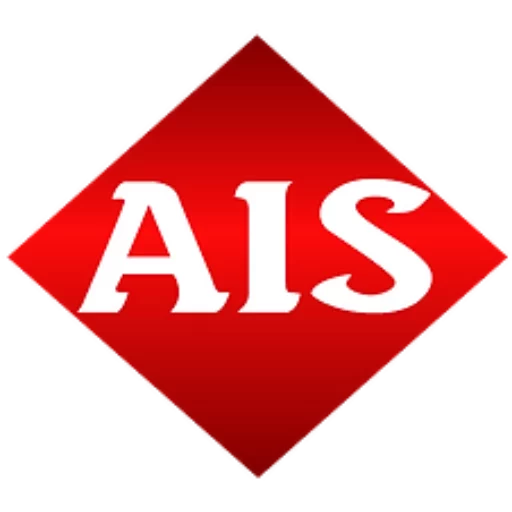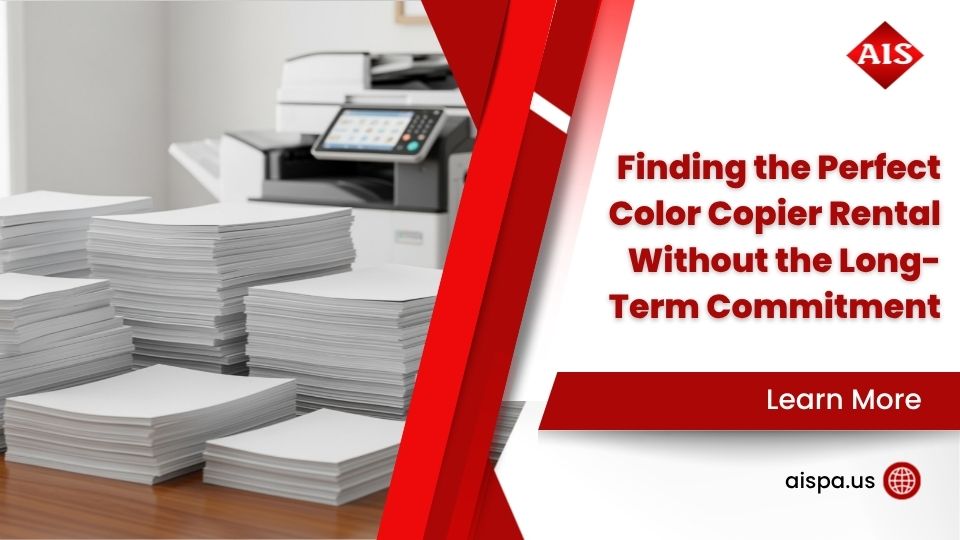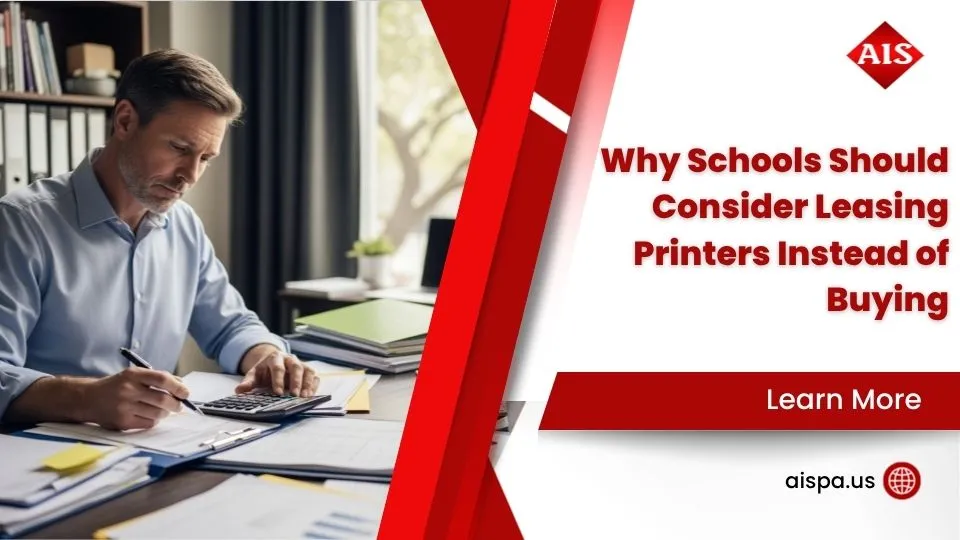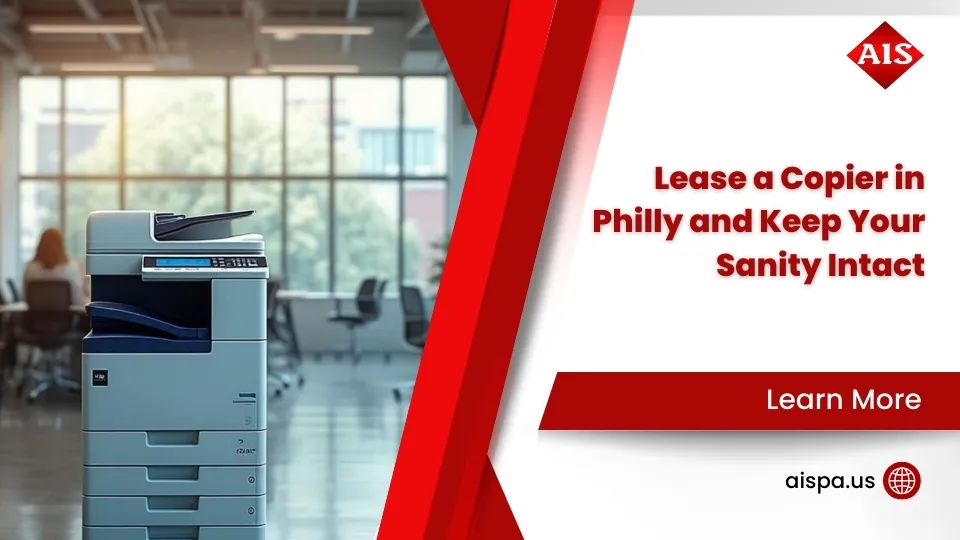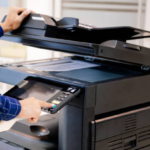7 Common Mistakes to Avoid When Leasing a Copier in Philadelphia
Leasing a Copier in Philadelphia
Leasing a copier in Philadelphia can be a savvy move for businesses looking to manage their expenses while enjoying the latest office technology. Instead of a hefty upfront cost, leasing allows companies to pay in manageable installments. However, many businesses make avoidable mistakes when entering into copier leases.
Avoiding these common mistakes can save your company time, money, and hassle. Missteps such as not fully understanding your needs, ignoring the total cost of ownership, and overlooking lease terms can lead to unexpected expenses and inefficiencies.
This article will explore the seven most common mistakes businesses make when leasing a copier in Philadelphia. We’ll dive into the importance of assessing your needs, understanding the full cost, reading the lease terms, considering service and maintenance, choosing the right model, evaluating leasing companies, and planning for the end of the lease. By avoiding these pitfalls, you’ll ensure a smoother, more cost-effective copier leasing experience.
Not Assessing Your Needs Properly Copier or Printer
Understanding Your Office Requirements
Assessing your office’s specific needs is crucial before leasing a copier or printer. One of the most important considerations is evaluating the volume of printing. Do you print hundreds of pages a day, or just a few dozen? This will help determine the type and size of the copier you need.
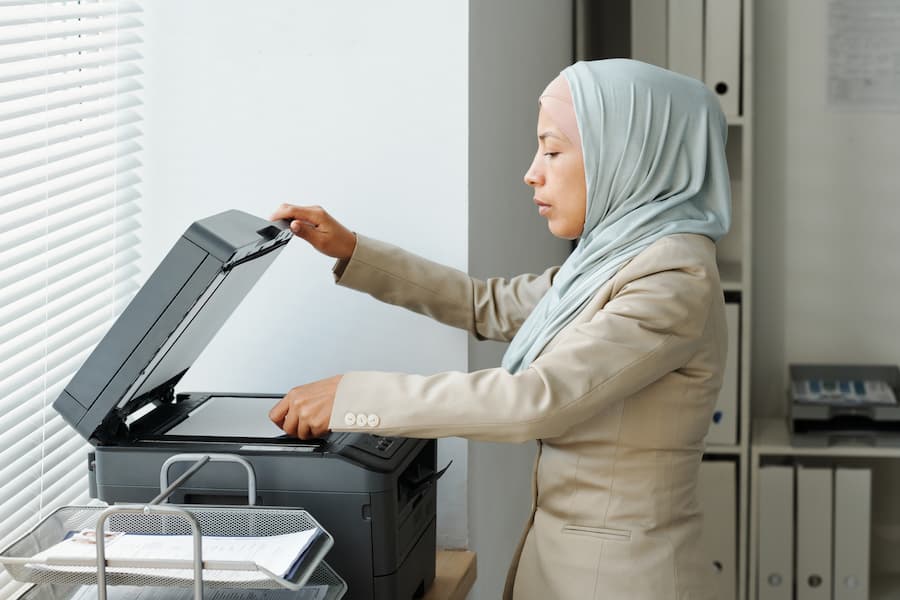
In addition to printing volume, think about the specific features your office requires. For instance, do you need a copier that also scans, faxes, or emails documents? Features like these can significantly enhance productivity. Multifunction copiers can streamline various office tasks, making them a valuable addition to any workplace.
Analyzing Workflow
Analyzing your office’s workflow is another critical step in selecting the right copier or printer. How your team uses office equipment can significantly impact which copier model will be most efficient. For example, if your team often prints large batches of documents, a copier with high-speed printing capabilities would be beneficial. Conversely, for offices that handle sensitive information, security features such as user authentication might be essential.
Ignoring Total Cost of Ownership
Initial Costs vs. Long-Term Costs
It’s easy to focus on the initial costs when leasing a copier or copier rental. However, the long-term costs can be just as important. The upfront cost might be low, but ongoing expenses can add up quickly. These include maintenance fees, toner, and other supplies. Therefore, it’s crucial to look at the total cost of ownership.
For instance, a copier with a low monthly lease payment might seem like a great deal. But if it requires expensive toner or frequent repairs, the overall cost can be much higher than a more expensive model with lower operating costs. Understanding these nuances can help you make a more informed decision.
Financial Planning for Copier Leasing
Proper financial planning is essential when leasing a copy machine. Start by setting a realistic budget that includes not just the lease payments but also the costs for maintenance and supplies. A good rule of thumb is to allocate a portion of your budget for unexpected expenses.
Financial advisors often recommend comparing different leasing options and their associated costs. For example, some leases might include maintenance in the monthly fee, while others charge separately. Additionally, consider the potential tax benefits of leasing a copier, which can sometimes offset some of the costs. Copier leasing companies in Philadelphia can offer detailed breakdowns to help with budgeting.
By planning financially and understanding the full scope of costs, you can avoid the common mistake of underestimating the total cost of ownership, ensuring your copier lease is financially sustainable.
Overlooking Lease Terms and Conditions
Reading the Fine Print
Understanding all terms in a copier lease contract is essential. Many businesses skim through the document, missing crucial details. The fine print often includes terms that can significantly impact your lease experience. For instance, some contracts may have clauses about usage limits or specific maintenance requirements that, if not met, could lead to penalties.
Common terms that are often misunderstood include escalation clauses, which allow the leasing company to increase payments over time, and automatic renewal clauses, which extend the lease without explicit consent. Therefore, it’s crucial to read and comprehend every part of the contract to avoid unpleasant surprises.
Contract Length and Renewal Terms
Typical copier lease durations range from one to five years. Shorter leases offer more flexibility, allowing businesses to upgrade their equipment more frequently. However, longer leases might provide lower monthly payments.
Handling contract renewals is another important aspect. Some contracts automatically renew if no action is taken. Therefore, it’s vital to keep track of the lease end date and review renewal terms well in advance. Deciding whether to renew, return, or upgrade the copier at the end of the lease requires careful consideration of your current and future business needs.
Penalties and Fees
Penalties and fees can turn a seemingly good deal into a costly mistake. Common penalties include charges for exceeding the monthly print limit or early termination of the lease. To avoid these, thoroughly understand the copier’s capabilities and your office’s needs.
Unexpected fees can arise from various sources. For example, some contracts charge for copier relocation or require you to purchase supplies exclusively from the leasing company. To mitigate these risks, clarify all potential fees upfront and negotiate terms that are favorable to your business.
Not Considering Service and Maintenance
Importance of Regular Maintenance
Regular maintenance is critical for optimal copier performance. Without it, the copier’s efficiency can decline, leading to frequent breakdowns and decreased productivity. Engaging with a reliable service provider ensures that your copier remains in top condition. For instance, regular cleaning and timely replacement of worn-out parts can prevent major issues.
Finding reliable service providers is essential. Look for providers with a proven track record and positive reviews. A good service provider will offer timely support and have a team of skilled technicians ready to address any issues.
Service Agreements
When leasing a copier, consider the service agreement carefully. A comprehensive service agreement covers regular maintenance, repairs, and sometimes even supplies. Compare different service plans to find one that meets your needs. For example, some plans offer 24/7 support, while others might include regular on-site visits.
A good service agreement should also include clear response time guarantees. Knowing that a technician will be on-site within a certain timeframe can provide peace of mind and minimize downtime. By choosing the right service plan, you ensure that your copier remains functional and efficient, reducing the risk of prolonged disruptions to your business.
Choosing the Wrong Copier Model
Latest Copier Models vs. Older Models
Leasing new vs. older copier models each has its pros and cons. New models often come with advanced features, better efficiency, and longer lifespans. However, they might come at a higher monthly lease payment. On the other hand, older models might be more affordable but could lack some of the latest functionalities.

It’s essential to balance cost with functionality. If your office primarily handles basic printing tasks, an older model might suffice. However, for businesses requiring advanced features like high-speed printing, cloud connectivity, or enhanced security, investing in a newer model could be beneficial.
Technology and Features
Modern office needs often dictate the required technology and features in a copier. Key features to consider include wireless connectivity, touch-screen interfaces, and multifunction capabilities such as scanning, faxing, and emailing.
Technological advancements can significantly benefit your office workflow. For instance, a copier with cloud integration allows employees to print documents directly from their devices, enhancing convenience and productivity. Additionally, features like automated document workflows and advanced security measures ensure that your office operations are efficient and secure.
Not Evaluating the Leasing Company
Researching Leasing Companies
Thoroughly researching leasing companies is vital. Start by looking at the company’s reputation, customer reviews, and testimonials. Companies with a long list of satisfied and happy customers are likely to provide better service.
Check for any complaints or negative feedback about the company’s practices, especially regarding hidden fees or poor customer service. Visiting the company’s website and reading independent reviews can give you a clearer picture of their reliability.
Evaluating Customer Service
Good customer service is essential in a leasing company. Poor service can lead to delays in support and unresolved issues, causing frustration and productivity loss. Ask potential leasing companies about their support structure and response times.
Questions to ask include: How quickly do they respond to service requests? Do they offer 24/7 support? What is their process for handling emergencies? Reliable customer service ensures that any issues with your copier are resolved promptly, minimizing downtime and keeping your business running smoothly.
Failing to Plan for the End of the Lease
End-of-Lease Options
Planning for the end of the lease period is crucial. Common options include renewing the lease, returning the copier, or upgrading to a new model. Each option has its benefits. Renewing the lease might offer a lower rate, returning allows for a fresh start, and upgrading ensures access to the latest technology.
Avoiding End-of-Lease Issues
End-of-lease issues can arise if not properly planned for. Common issues include unexpected fees for returning the copier or penalties for not renewing on time. To avoid these, review your lease agreement well before the end date and decide on the next steps. Having a clear plan ensures a smooth transition and avoids any last-minute complications.
What People May Also Ask
What are the benefits of leasing a copier instead of buying?
Leasing a copier offers lower upfront costs, flexibility to upgrade, and includes maintenance services.
How long does a typical copier lease last?
A typical copier lease lasts between one to five years, depending on the agreement.
What happens if the copier breaks down during the lease period?
If the copier breaks down, the service agreement typically covers repairs. Ensure your lease includes comprehensive support.
Can I upgrade my copier during the lease?
Yes, many leases offer options to upgrade to a newer model during the lease period, usually at a revised rate.
Are there tax benefits to leasing a copier?
Leasing a copier can offer tax advantages, as lease payments can often be deducted as a business expense.
Conclusion
Leasing a copier in Philadelphia can be a cost-effective solution if you avoid common mistakes. By assessing your needs, understanding total costs, reading lease terms, considering maintenance, choosing the right model, evaluating leasing companies, and planning for the end of the lease, you can ensure a smooth experience.
Take the time to make informed decisions to avoid pitfalls. By doing so, you’ll maximize the benefits of leasing and keep your business running efficiently. If you have any questions or need assistance, don’t hesitate to call us or visit our website.
For more information and services you can contact us for a free quote and estimation.
- Address: 165 Veterans Way, Warminster, PA 18974
- Email: sales@aispa.us
- Call Us: (215) 999-8445
